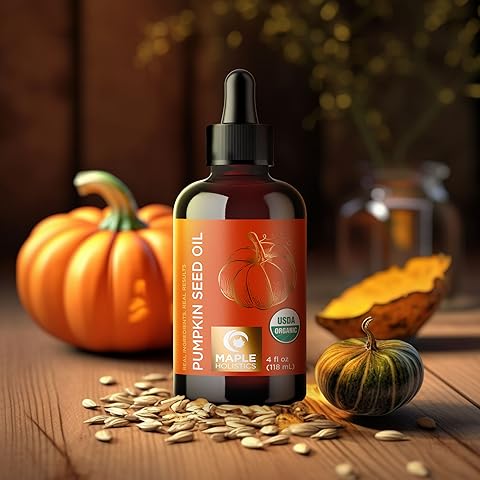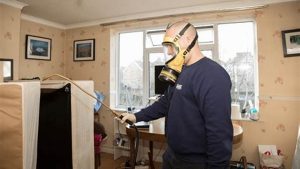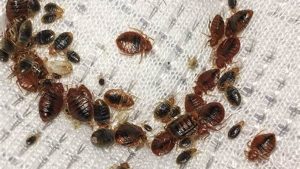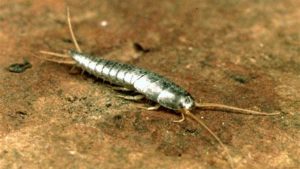Bed bugs are a nightmare for many homeowners, causing sleepless nights and itchy bites. While chemical treatments are effective, they can be harsh and expensive. Enter tea tree oil, a natural remedy that has been gaining popularity for its potential to combat these pesky invaders. This article will guide you through the process of using tea tree oil to tackle bed bugs effectively.
Understanding Tea Tree Oil
Tea tree oil, also known as melaleuca oil, is derived from the leaves of the Melaleuca alternifolia tree native to Australia. It’s renowned for its antimicrobial, antibacterial, and insecticidal properties, making it a versatile tool in natural pest control.
What is Tea Tree Oil?

Tea tree oil is an essential oil extracted through steam distillation of the Melaleuca alternifolia leaves. It has been used for centuries in traditional medicine to treat various skin conditions and infections due to its potent properties.
Why Use Tea Tree Oil for Bed Bugs?
Tea tree oil offers a chemical-free alternative to traditional pesticides. Its strong scent and insecticidal properties can help repel and kill bed bugs, providing a safer option for households with children and pets.
Effectiveness of Tea Tree Oil Against Bed Bugs
While tea tree oil has insecticidal properties, its effectiveness against bed bugs is a topic of debate. Let’s explore its potential.
Does Tea Tree Oil Kill Bed Bugs?
Tea tree oil can kill bed bugs on contact by penetrating their exoskeleton and suffocating them. However, its effectiveness is limited to direct application, meaning it won’t reach bugs hiding deep within mattresses or furniture.
Does Tea Tree Oil Repel Bed Bugs?
The strong scent of tea tree oil can act as a repellent, deterring bed bugs from infested areas. However, this repellent effect is not foolproof and should be part of a broader pest control strategy.
How to Use Tea Tree Oil for Bed Bugs
Using tea tree oil requires careful preparation and application to maximize its effectiveness and ensure safety.
Preparation
Before you start, ensure you have high-quality, 100% pure tea tree oil. It’s crucial to dilute the oil to avoid skin irritation and potential toxicity. A common dilution ratio is 20 drops of tea tree oil to 200 ml of water.
Dilution Process
Mix 20 drops of tea tree oil with 200 ml of water in a spray bottle. Shake well to combine. Always test the solution on a small, inconspicuous area to check for any adverse reactions or staining.
Application Methods
- Spraying: Spray the diluted solution on areas where bed bugs are likely to hide, such as mattress seams, bed frame crevices, and the edges of furniture. Ensure thorough coverage to maximize contact with the bugs
.Soaking Cotton Balls: Soak cotton balls in the diluted tea tree oil solution and place them in infested areas. This method can help target hard-to-reach spots.Laundry Additive: Add a few drops of tea tree oil to your laundry detergent when washing infested bedding and clothing to kill any bugs or eggs present
- .
Additional Tips and Considerations
Combining tea tree oil with other essential oils, such as lavender or peppermint, can enhance its effectiveness and provide a more pleasant scent. Consistent application is key, so plan to reapply the solution daily for at least a week.
Combining with Other Essential Oils
Mixing tea tree oil with lavender or eucalyptus oil can boost its insecticidal properties and improve the overall scent. Use the same dilution guidelines for a safe and effective mixture.
Monitoring and Evaluating Results
Regularly check for signs of bed bug activity and reapply the solution as needed. If you don’t see improvement within a week, it may be time to consult a professional pest control service.
| Aspect | Details |
|---|---|
| Effectiveness | – Kills bed bugs on contact by penetrating their exoskeleton and suffocating them |
| . | |
| – Limited effectiveness as it requires direct application to each bug |
| . | |
| – Acts as a repellent due to its potent scent, but the effect is temporary |
| . | |
| Chemical Components | – Contains terpinen-4-ol, which has insecticidal properties |
| . | |
| – Other components include 1,8 cineole and gamma-terpinene, contributing to its efficacy |
| . | |
| Application Methods | – Dilute 20 drops of tea tree oil in 200 ml of water for safe use |
| . | |
| – Apply directly to infested areas such as mattress seams and bed frame crevices |
| . | |
| – Use soaked cotton balls for hard-to-reach spots |
| . | |
| Safety Considerations | – Highly concentrated tea tree oil can cause skin irritation and allergic reactions |
| . | |
| – Toxic to pets and should be used with caution around children |
| . | |
| Pros | – Natural and chemical-free alternative |
| . | |
| – Antimicrobial and antibacterial properties |
| . | |
| Cons | – Not effective for severe infestations; professional treatment is often necessary |
| . | |
| – Requires consistent and frequent application |
| . | |
| Other Remedies | – Combining with other essential oils like lavender or eucalyptus can enhance effectiveness |
| . | |
| – Alternative methods include diatomaceous earth, heat treatment, and professional pest control |
Conclusion
Tea tree oil can be a valuable tool in the fight against bed bugs, offering a natural and safer alternative to chemical treatments. While it may not eliminate an infestation on its own, it can be an effective part of a comprehensive pest control strategy. Remember, consistency is key, and combining tea tree oil with other methods can enhance its effectiveness. If the problem persists, don’t hesitate to seek professional help.By following these guidelines, you can take a proactive approach to managing bed bugs and enjoy a more peaceful night’s sleep.
Frequently Asked Questions (FAQ)
Does tea tree oil kill bed bugs?
While tea tree oil has some insecticidal properties, its effectiveness against bed bugs is limited. It may kill bed bugs on direct contact, but it’s not a reliable solution for an entire infestation.
How should I apply tea tree oil for bed bugs?
If you choose to try tea tree oil, dilute it with water or a carrier oil (1 part tea tree oil to 10 parts water/carrier oil). Apply the solution to infested areas using a spray bottle or soaked cotton balls.
Is tea tree oil safe to use around children and pets?
Tea tree oil can be toxic if ingested and may cause skin irritation. Always keep it out of reach of children and pets. Consult with a veterinarian before using it in homes with animals.
Can tea tree oil repel bed bugs?
While tea tree oil has a strong scent that may deter some insects, there’s no conclusive evidence that it effectively repels bed bugs.
Are there any risks associated with using tea tree oil?
Yes, undiluted tea tree oil can cause skin irritation or allergic reactions in some people. Always perform a patch test before widespread use and follow proper dilution guidelines.
What are more effective alternatives to tea tree oil for bed bugs?
Professional heat treatments, insecticidal dusts, and steam treatments are generally more effective for eliminating bed bug infestations. Essential oil-based pesticide products have shown better results than tea tree oil alone.
Can tea tree oil help with bed bug bites?
While it may not prevent bites, diluted tea tree oil can help soothe itching from bed bug bites. Always dilute it properly before applying to the skin.
Is tea tree oil a long-term solution for bed bugs?
No, tea tree oil is not a long-term solution. For complete eradication of a bed bug infestation, professional pest control services are typically necessary.
How does tea tree oil compare to other natural remedies for bed bugs?
While tea tree oil has limited effectiveness, other natural remedies like diatomaceous earth have shown better results in controlling bed bugs. However, these should be used in conjunction with professional treatments for best results.
Can I use tea tree oil as a preventive measure against bed bugs?
There’s no evidence to suggest that tea tree oil can prevent bed bug infestations. Focus on proven prevention methods like regular inspections and proper hygiene practices instead.


